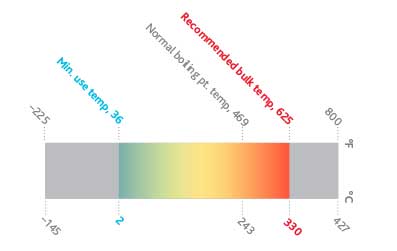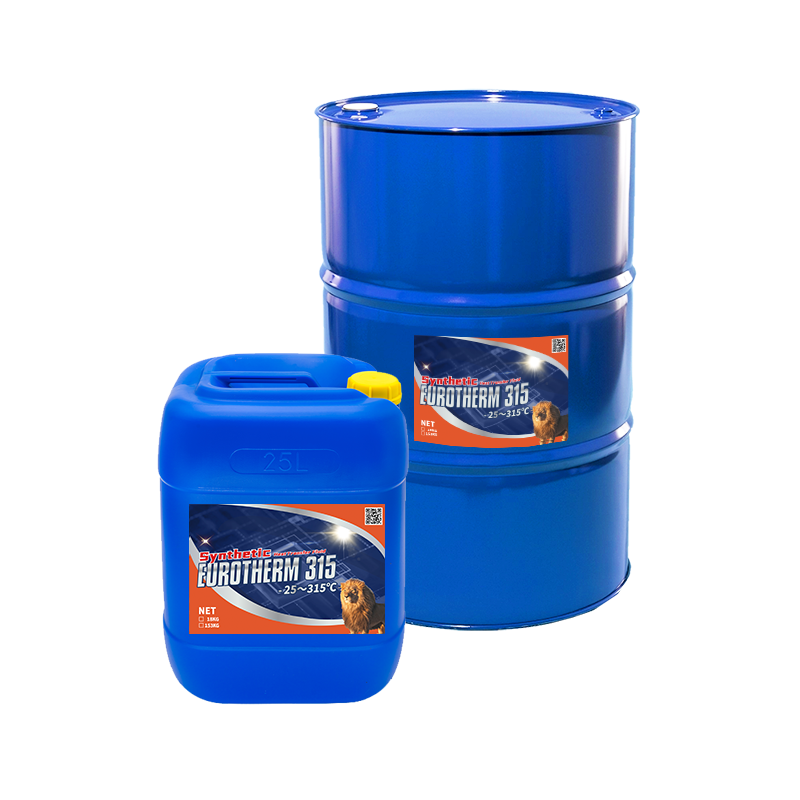The Duty of Warm Transfer Fluid in Enhancing System Efficiency and Safety And Security
In the ever-evolving landscape of industrial procedures, warmth transfer fluids (HTFs) arise as pivotal parts in enhancing both system performance and safety and security. These specialized fluids, recognized for their superior thermal conductivity and regulated viscosity, enable efficient warm exchange, which is important for structured operations.
Recognizing Warmth Transfer Liquids
Warm transfer fluids, typically considered the lifeline of thermal administration systems, play a critical role in regulating temperature across various commercial applications - heat transfer fluid. Industries such as chemical processing, power generation, and manufacturing depend on warm transfer fluids to ensure devices runs efficiently and safely.
The choice of an appropriate heat transfer liquid is vital to the success of a thermal monitoring system. Recognizing the nature and function of these liquids entails recognizing their ability to take in, transportation, and release heat properly. Warmth transfer liquids can be extensively classified right into various types, consisting of water-based, glycol-based, and artificial oils, each with its details applications and advantages. The selection of liquid depends upon aspects such as temperature variety, thermal security, and compatibility with system products. In recap, an extensive understanding of warm transfer fluids is vital for optimizing system efficiency, making sure functional safety and security, and attaining cost-efficient thermal management remedies.
Secret Residence of HTFs

The particular warm capability of an HTF marks the amount of heat called for to change its temperature level, influencing just how effectively the system can react to temperature level variations. The boiling and freezing points of HTFs additionally play a pivotal duty, especially in systems exposed to extreme temperatures, guaranteeing fluid security and avoiding phase modifications during procedure. Furthermore, the chemical security of HTFs under differing thermal conditions is essential to stop degradation and prolong fluid life. Lastly, compatibility with system materials is necessary to avoid corrosion and material destruction, guaranteeing long-term operational reliability. These residential or commercial properties collectively inform the option of an appropriate HTF for certain commercial applications.
Enhancing System Performance
To boost system efficiency with warm transfer fluids (HTFs), it is crucial to integrate an extensive method that considers both fluid residential properties and system design. The choice of an appropriate HTF is critical, as its thermal conductivity, viscosity, and certain warm capacity directly affect the effectiveness of heat exchange.
Just as crucial is the design of the warm transfer system itself. The surface area and material of warmth exchangers should be maximized to maximize warmth transfer effectiveness.
Boosting Operational Security
Making certain operational security in warmth transfer systems requires a precise concentrate on both the buildings of heat transfer fluids (HTFs) and the style and upkeep of the entire system. HTFs must possess thermal security, low flammability, and proper viscosity to reduce risks such as leakages, fires, and system malfunctions. Picking the right HTF is critical as it figures out the system's ability to deal with temperature changes without compromising security.
The style of the system ought to include redundancies and fail-safes to take care of potential risks successfully. This consists of the integration of safety shutoffs, pressure alleviation devices, and temperature level tracking systems to detect and attend to anomalies promptly. Click Here Regular upkeep is vital to ensure that all elements, including pumps, pipes, and seals, are operating appropriately and are devoid of wear or rust, which can lead to harmful leaks or failings.
Furthermore, employees accountable for the operation and maintenance of warm transfer systems must be adequately learnt safety procedures and emergency reaction treatments. Consistent training programs and safety and security drills can substantially minimize the probability of crashes, making sure a more secure working atmosphere. Ultimately, an extensive method to safety and security-- incorporating liquid choice, system design, and workforce training-- is essential for ideal operational safety and security.
Market Applications of HTFs
Extensively utilized throughout numerous fields, heat transfer liquids (HTFs) play an important duty in enhancing the effectiveness and reliability of thermal management systems. In the chemical industry, HTFs are integral for keeping accurate temperature levels during responses, ensuring product consistency and quality. They assist in warm exchange processes in activators, condensers, and warmth exchangers, thereby maximizing power use and lessening waste.
In the oil and gas market, HTFs are used in both upstream and downstream operations. They manage temperature in drilling operations and improve performance in web link refining processes by supplying stable thermal conditions. This causes decreased downtime and enhanced safety, especially in critical procedures such as distillation and cracking.
The sustainable energy sector additionally benefits considerably from HTFs, particularly in concentrated solar power (CSP) plants. Right here, HTFs move captured solar power to power wind turbines, making it possible for effective power generation. The pharmaceutical market counts on HTFs for accurate temperature control in both synthesis and storage space, ensuring product efficiency and safety.


In addition, the food and drink industry uses HTFs for pasteurization, sterilization, and cooking procedures, improving both product security and production efficiency. Across these industries, HTFs function as indispensable elements in maintaining optimum functional performance and safety.
Final Thought
Heat transfer fluids are important in improving industrial system performance and security by providing high thermal conductivity, optimal viscosity, and thermal stability. Proper selection and upkeep of HTFs improve heat exchange performance, consequently boosting functional efficiency. The reduced flammability of these fluids is essential address for minimizing dangers and ensuring secure procedures. Comprehensive workers training and routine upkeep additionally sustain the reliability and effectiveness of commercial procedures, strengthening the critical role of HTFs in diverse applications.